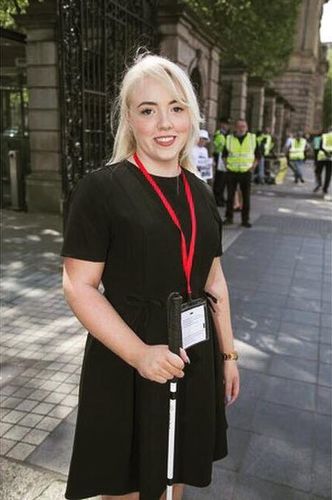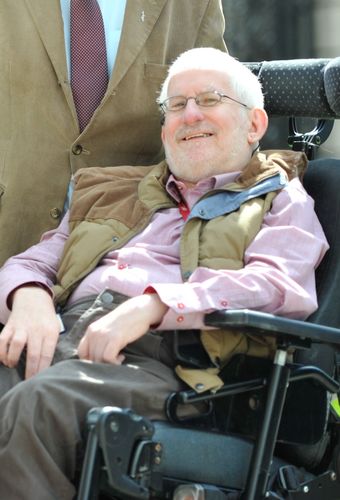Call for equality for voters with disabilities
April 6 2019
Dublin - Disability Federation of Ireland, DFI
Jess Ni Mhaolain - “ I can well imagine most people would just never try to vote again it was so much hassle”. |
Don Bailey - “Being able to go out to vote is an important part of inclusion“. |
As the people of Ireland prepare to exercise their right to vote in the upcoming local and EU elections, the Disability Federation of Ireland, DFI, has protested on behalf of people with disabilities who still face a wide range of unacceptable barriers to voting.
DFI has written to Minister Eoghan Murphy* with serious concerns about voting access for people with disabilities in the May 24th local and European elections. The Federation has launched a campaign, #DisabilityVotesCount to stress the importance of local and European politics to people with disabilities.
Of concern are:
- Lack of disability awareness among returning officers leading to people being challenged about voting supports, for example help from personal assistants.
- In 2019, an unacceptably high number of inaccessible polling stations.
- Schools chosen for accessibility being rendered inaccessible because of room selection within the schools on election day.
- A very complex voting system for people with visual impairment, despite a High Court case.
- Poor dissemination of information to people with disabilities about a range of add-on measures that enable them to vote such as mobile polling booths and postal voting.
“We were one of the last countries in the World to ratify the UN CRPD, United Nations Convention on the Rights of Persons with Disabilities. The reason given was that we were putting in place legislation and other measures necessary to implement the Convention. So, it’s a major let-down to discover we can’t manage such a basic right as voting.
There are 643,131 people in Ireland living with a disability. That’s 13.4% of the population. There are 2,734 people living in offshore islands. Compare the treatment of the two groups and it’s clear that the promise of equality contained in the Convention is not being taken seriously.”
DFI have launched their #DisabilityVotesCount campaign to highlight the power that local councillors and MEPs have to improve the lives of people with disabilities.
DFI have manifestos for both local and European elections which they are asking candidates to support.
Case Studies
Jess Ní Mhaoláin is a young woman who has had two voting opportunities. There was such a fuss about getting her the brail template that she never asked for it on her second election. “I was actually mortified when the polling officer asked me if I needed the template. I was carrying a cane, I have a severe visual impairment, you’d think I wouldn’t need to explain myself. Then the polling clerk was embarrassed and I was embarrassed….”
Don Bailey says, “No school should be inaccessible in 2019 and the temporary ramps used are not satisfactory or stable. I’ve also found parking very difficult at the polling stations. Voting brings people into the community and being able to go out to vote is an important part of inclusion.“
Note
*Eoghan Murphy is Minister for Housing, Planning and Local Government
ENDS
For further information contact;
DFI Communications Manager: Clare Cronin at 01-7080108 or 086 0277824, clarecronin@disability-federation.ie


